‘Pleasingly feisty’: Wartime hero Nancy Wake’s take on Aussie screen legend Noni Hazlehurst
Screen icon Noni Hazlehurst shares personal details of an extraordinary career in her new memoir. Read about what happened during her encounter with an Aussie wartime hero.
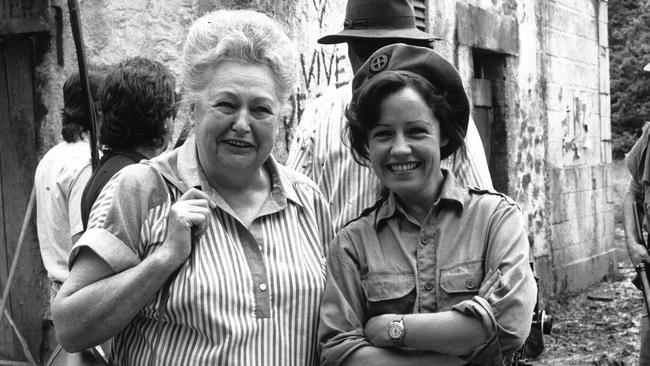
Books
Don't miss out on the headlines from Books. Followed categories will be added to My News.
Screen icon NONI HAZLEHURST lifts the lid on her extraordinary career in new memoir, Dropping The Mask. In this extract, she recalls her encounter with an Australian wartime legend: undercover agent Nancy Wake.
I stepped off one set straight onto another. The day after wrapping on 1987 outback epic The Shiralee, I was back in Melbourne to start preparing for another miniseries, Nancy Wake, covering the war heroine’s experiences during World War II.
Initially planned as an eight-part series, it was cut back to just two episodes, two hours each, and as a result, barely scratched the surface of her courage and exploits. Mum read everything she could find about Nancy and watched the show with me when it aired. She summed it up perfectly: ‘They didn’t really do her justice.’
I met the redoubtable Nancy several times. I don’t think she’d seen much, if any, of my previous work, but she had watched an interview I did with Ray Martin, in which he asked if my reputation for integrity was a millstone around my neck. I thought that was a pretty silly question, and said something like, ‘It’s a sad state of affairs if integrity is seen as a problem.’
Ray persisted. ‘But would you ever do anything crazy like run naked through Martin Place?’
‘Sure,’ I said, ‘but I’d do it with integrity.’
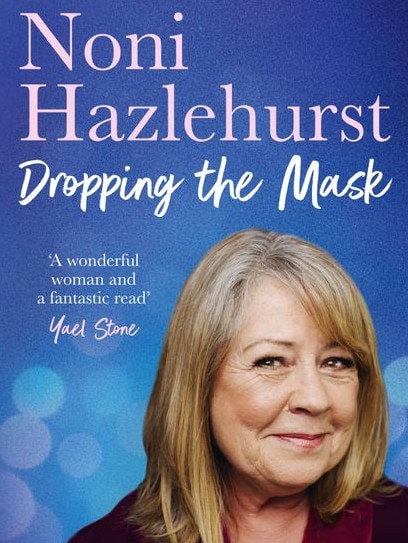
Nancy thought I was pleasingly feisty, so I had her seal of approval.
We were introduced at a lunch with the producers, who warned me about Nancy’s prodigious capacity for alcohol. They weren’t wrong – her intake was impressive. The only giveaway was that her pearls ended up slightly off-centre.
Her tolerance for alcohol was an advantage during the war, as was her knowledge of patois, acquired from her French husband, Henri Fiocca, a wealthy industrialist from Marseilles. Nancy could drink anyone under the table, German soldiers or Resistance members alike, gleaning valuable information as the men’s lips loosened. She understood the plots that were being fomented against her when the plotters spoke in dialect, believing she had no idea what they were saying.
If you haven’t read about her achievements, I urge you to do so. Her story is incredible. But the series focused on the love story between Nancy and Henri, rather than faithfully chronicling her war efforts. Before being forced to leave France to avoid arrest by the Germans, she helped thousands of Allied servicemen and Jewish people escape to safety. To watch the series, you’d think it only happened once or twice. I remember begging for captions, or something, to fill in some of the gaps and better acknowledge the breadth of her achievements, but to no avail. Channel 7 wanted a love story.
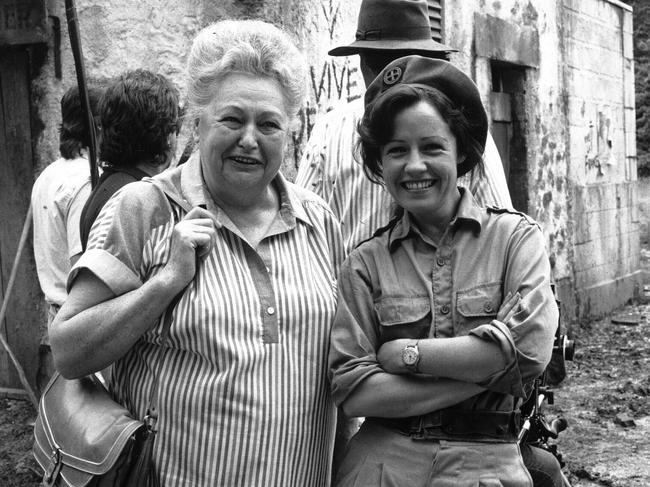
I remember asking Nancy what motivated her to give everything up for the war effort and to take such risks. Her answer was simple – hatred of the Germans and everything they stood for. Working as a journalist in Austria in 1933, she witnessed the cruelty and violence inflicted on the Jewish people by Nazi gangs, and resolved to do everything in her power to defeat them. She blamed herself for Henri’s death. He was captured, tortured and killed by the Germans because of her choices and his refusal to give up her whereabouts.
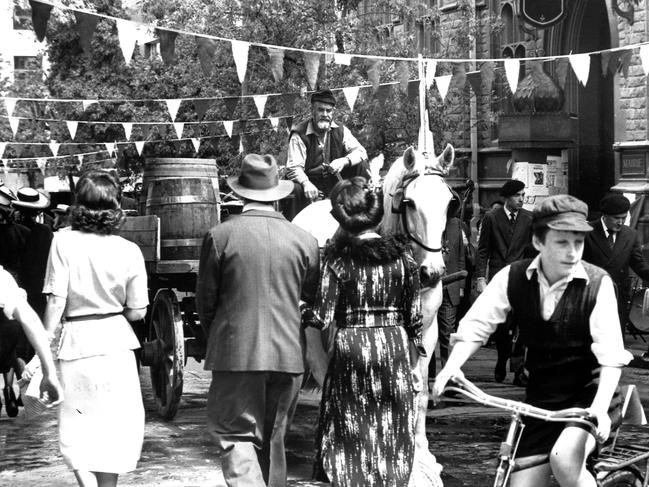
It was a dream role in many ways. I had to learn how to throw a hand grenade, fire a bazooka, and kill a man with my bare hands – all useful skills. I didn’t have to make a single cup of tea, and the high-fashion clothes designed by Jane Hyland were stunning. The only real downside? Bloody Nancy cycled across the bloody Pyrenees in seventy-two hours, didn’t she? My lack of cycling prowess was revealed, and if you ever see the series, you’ll see some of the worst fake bike-riding imaginable.
Part of the series would be shot in Paris, Marseilles and London, which more than compensated for the weeks we spent at the Werribee sewage farm in Melbourne in the middle of summer, pretending it was a pine forest in the French countryside.
The lovely John Waters, one of my Play School co-hosts, was cast as Nancy’s husband, and our director was Pino Amenta, a fiery Italian well-loved in the industry.
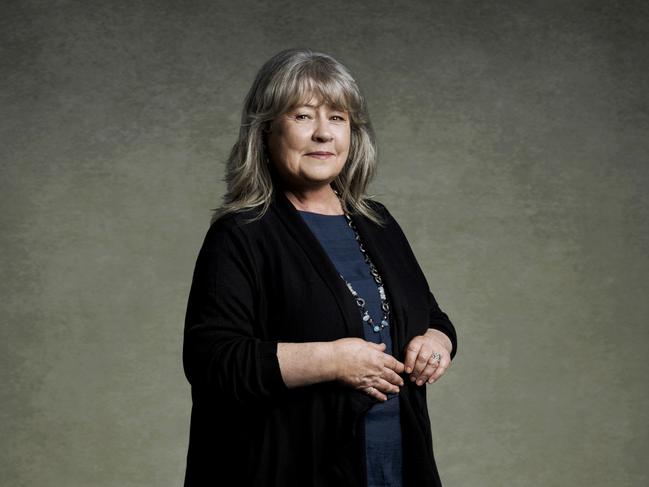
The trip to France was a lovely bonus. We picked up some French crew en route, including a second assistant director called Hubert. In France, his name is pronounced ‘Youbair’, but our Aussie crew resisted the accent and called him ‘Hewbit’ instead. He drove the actors, communicating with our tech team by walkie-talkie. Hubert spoke pretty good English, but had trouble understanding the broad Australian accents and slang, especially when accompanied by crackling noises, so I would translate for him.
One freezing day while the cameras were setting up, Hubert asked me if I wanted to wait in the mini-van to keep warm. Indicating that I could sit in the front seat or the back, he said, ‘Noni, would you like it up ze backside?’ Bless.
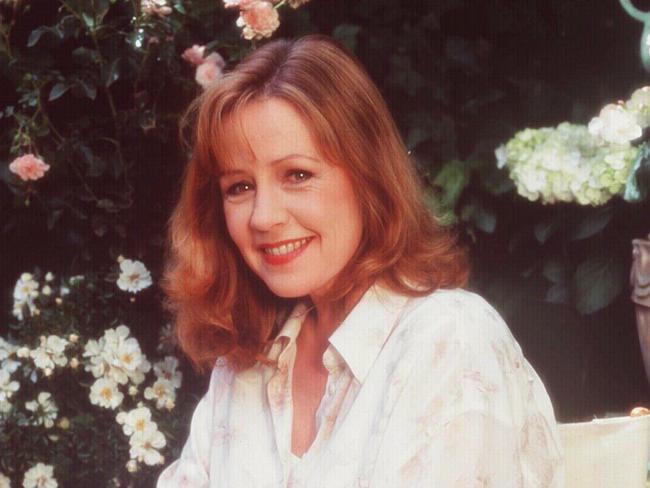
The four-month shoot was great fun, but I was feeling pretty burned out after the last few hectic years. During our Christmas/New Year break from filming, I’d bought another Blue Mountains home, in Blackheath again, on a half-acre plot with views of the sandstone cliffs above the Megalong Valley. The cottage was pretty ramshackle, with only four rooms and in need of substantial renovation, but liveable and affordable at $26,000. The renovation would have to be done bit by bit. I happily settled into my new environment. I needed a rest.
This is an edited extract from Dropping The Mask by Noni Hazlehurst: available now, published by HarperCollins.
Originally published as ‘Pleasingly feisty’: Wartime hero Nancy Wake’s take on Aussie screen legend Noni Hazlehurst


